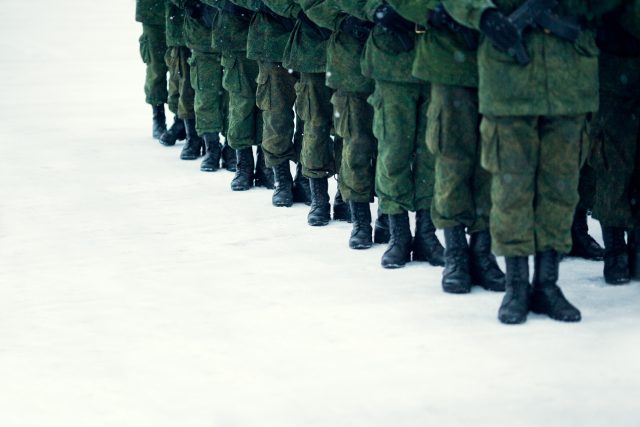
Russian President Vladimir Putin’s invasion of Ukraine has been very costly in blood and treasure, as well as Russia’s reputation as a military powerhouse. A declassified U.S. intelligence assessment sent to Congress on Dec. 11 found that Moscow had lost about 315,000 of the 360,000 active-duty ground troops it had before the invasion, or 87% of its pre-invasion army, to death or disablement on Ukrainian battlefields.
Putin, who is seeking yet another term in 2024, does not want to restock his army through a second unpopular draft. But Russia’s military and paramilitary allies have successfully recruited thousands of prisoners, promising them pardons and public redemption in exchange for fighting in Ukraine, if they survived. Tens of thousands of these convicts were used as cannon fodder in Bakhmut, Andiivka and other Russian battles.
But the return home of the survivors has created its own problems. “Communities across Russia have been brutalized by scores of crimes perpetrated by these returning convicts,” including random and bloody murder sprees, The Wall Street Journal reported, citing its review of court documents, media reports and interviews with friends and relatives of the suspects and the victims.
How many convicts has Russia sent to war in Ukraine?
Tens of thousands. Wagner, the mercenary militia that began Russia’s prison recruitment drive in April 2022, said that about 50,000 inmates had served in its forces in Ukraine before Wagner exited the country for a brief mutiny against Russia’s defense ministry. In June 2023, weeks before Wagner chief Yevgeny Prigozhin died in a plane explosion in Russia, he said that 32,000 of those convicts had come back home, their records wiped clean.
Russia, which muscled Wagner out of the prison-recruitment business in early 2023, “hasn’t confirmed the total number of convicts recruited by Wagner and the Defense Ministry,” but the prison service recorded a “reduction of more than 35,000 in the country’s total prison population between May 2022 and January 2023,” when Wagner’s recruitment drive was at its peak, the Journal reported. “It hasn’t published such figures since.”
Is this a normal form of military recruitment?
Not anymore.
“Prisoners were routinely dragooned into armies for centuries up through World War II,” the Journal said. Soviet leader Joseph Stalin built up the Red Army by conscripting criminals and political prisoners, and Adolf Hitler had his penal battalion, or Strafbataillon. But after the war, “a renewed emphasis on the laws of war” and the professionalization of military forces phased out prisoner recruitment and “made it taboo in the Western world.”
Why are the prisoners joining Putin’s penal corps?
Many convict recruits found the idea of war and possible death a better option than remaining in the “savage, dehumanizing conditions of Russian prisons,” and some said they were spurred by patriotism or “a craving for action after years of confinement,” The New York Times reported. “Yet interviews with the fighters and their relatives also revealed a deeper longing for redemption,” respect and a boost to their battered self-worth.
Even if he were killed in battle, “I didn’t want to be such a bad person in the eyes of the children in our village,” a Wagner recruit named Nikolai told the Times. “I would be remembered not as a convict, but as a man who died in a war” and provided for his family afterward with his death payout.
Data reviewed by the Times found that the recruited prisoners averaged 33 years old, came mostly from small towns or villages, were busted for selling drugs, and had five more years left on their sentences. Some of those who survived said they returned to new lives with clean records and heads held high. Others “have struggled to find meaning in the decision they made, or to deal with the trauma of war,” and some “slipped back into crime,” the Times reported.
What kind of crime?
Everything from drug offenses to wanton murder. One returning convict was convicted in September of strangling a woman to death after arguing over an apartment rental. Another is accused of raping two girls, and a pardoned killer wandered the streets of a village “swinging an ax and carrying a pitchfork,” the Journal reported. A three-time convicted murderer “poured gasoline on his sleeping sister and burned her alive.”
“I don’t feel safe. Thousands of criminals are walking our streets,” Anna Pekaryova, whose grandmother was murdered by the village ax-swinger last March, told the Journal. “I have lost count how many times such crimes have happened.”
What’s Russia doing about its pardoned criminal problem?
The recidivist ex-convicts are arrested and prosecuted, but because their records have been expunged, they are sentenced as first-time offenders. Some judges give them lenient sentences because of their war service.
Putin acknowledged in June that convict-soldiers he pardoned for fighting in Ukraine are returning to Russia, and some are reoffending, but he said “the negative consequences are minimal.” In November, his spokesperson Dmitry Peskov, answering a question about a pardoned member of a cannibal gang who returned to Russia earlier in the month, said the freed convicts are “atoning for their crimes on the battlefield with their blood.”
But the Kremlin is watching the mounting crimes by returning convict-soldiers and trying to keep them from coming home, Olga Romanova, head of the Russia Behind Bars prisoner rights organization, told the Journal. A lawmaker on the parliament’s defense committee said in September that recruited prisoners will return only when the war is over, not after six months, if they survive.
The mother of Igor Sofonov — a returned prisoner-fighter who stands accused of murdering six people in a Russian village, then mutilating and burning their bodies, after a night of heavy drinking — agreed. Any convict recruited to fight in Ukraine, she told the Journal, “should stay there until the end.”
Putin’s Ministry of Defense, like Wagner, is recruiting soldiers from Russian prisons to fight his Ukraine war. Russians aren’t excited about them returning home.






